第29章
"You do not, you cannot love that cold, dried-up, taciturn little usurer on wine casks and land, who would leave any man in the lurch for twenty-five centimes on a renewal. Oh, I have fully recognized Monsieur de la Baudraye's similarity to a Parisian bill-discounter;their nature is identical.--At eight-and-twenty, handsome, well conducted, and childless--I assure you, madame, I never saw the problem of virtue more admirably expressed.--The author of /Paquita la Sevillane/ must have dreamed many dreams!
"I can speak of such things without the hypocritical gloss lent them by young men, for I am old before my time. I have no illusions left.
Can a man have any illusions in the trade I follow?"By opening the game in this tone, Lousteau cut out all excursions in the /Pays de Tendre/, where genuine passion beats the bush so long; he went straight to the point and placed himself in a position to force the offer of what women often make a man pray for, for years; witness the hapless Public Prosecutor, to whom the greatest favor had consisted in clasping Dinah's hand to his heart more tenderly than usual as they walked, happy man!
And Madame de la Baudraye, to be true to her reputation as a Superior Woman, tried to console the Manfred of the Press by prophesying such a future of love as he had not had in his mind.
"You have sought pleasure," said she, "but you have never loved.
Believe me, true love often comes late in life. Remember Monsieur de Gentz, who fell in love in his old age with Fanny Ellsler, and left the Revolution of July to take its course while he attended the dancer's rehearsals.""It seems to me unlikely," replied Lousteau. "I can still believe in love, but I have ceased to believe in woman. There are in me, Isuppose, certain defects which hinder me from being loved, for I have often been thrown over. Perhaps I have too strong a feeling for the ideal--like all men who have looked too closely into reality----"Madame de la Baudraye at last heard the mind of a man who, flung into the wittiest Parisian circles, represented to her its most daring axioms, its almost artless depravity, its advanced convictions; who, if he were not really superior, acted superiority extremely well.
Etienne, performing before Dinah, had all the success of a first night. /Paquita/ of Sancerre scented the storms, the atmosphere of Paris. She spent one of the most delightful days of her life with Lousteau and Bianchon, who told her strange tales about the great men of the day, the anecdotes which will some day form the /Ana/ of our century; sayings and doings that were the common talk of Paris, but quite new to her.
Of course, Lousteau spoke very ill of the great female celebrity of Le Berry, with the obvious intention of flattering Madame de la Baudraye and leading her into literary confidences, by suggesting that she could rival so great a writer. This praise intoxicated Madame de la Baudraye; and Monsieur de Clagny, Monsieur Gravier, and Gatien, all thought her warmer in her manner to Etienne than she had been on the previous day. Dinah's three /attaches/ greatly regretted having all gone to Sancerre to blow the trumpet in honor of the evening at Anzy;nothing, to hear them, had ever been so brilliant. The Hours had fled on feet so light that none had marked their pace. The two Parisians they spoke of as perfect prodigies.
These exaggerated reports loudly proclaimed on the Mall brought sixteen persons to Anzy that evening, some in family coaches, some in wagonettes, and a few bachelors on hired saddle horses. By about seven o'clock this provincial company had made a more or less graceful entry into the huge Anzy drawing-room, which Dinah, warned of the invasion, had lighted up, giving it all the lustre it was capable of by taking the holland covers off the handsome furniture, for she regarded this assembly as one of her great triumphs. Lousteau, Bianchon, and Dinah exchanged meaning looks as they studied the attitudes and listened to the speeches of these visitors, attracted by curiosity.
What invalided ribbons, what ancestral laces, what ancient flowers, more imaginative than imitative, were boldly displayed on some perennial caps! The Presidente Boirouge, Bianchon's cousin, exchanged a few words with the doctor, from whom she extracted some "advice gratis" by expatiating on certain pains in the chest, which she declared were nervous, but which he ascribed to chronic indigestion.
"Simply drink a cup of tea every day an hour after dinner, as the English do, and you will get over it, for what you suffer from is an English malady," Bianchon replied very gravely.
"He is certainly a great physician," said the Presidente, coming back to Madame de Clagny, Madame Popinot-Chandier, and Madame Gorju, the Mayor's wife.
"They say," replied Madame de Clagny behind her fan, "that Dinah sent for him, not so much with a view to the elections as to ascertain why she has no children."In the first excitement of this success, Lousteau introduced the great doctor as the only possible candidate at the ensuing elections. But Bianchon, to the great satisfaction of the new Sous-prefet, remarked that it seemed to him almost impossible to give up science in favor of politics.
"Only a physician without a practice," said he, "could care to be returned as a deputy. Nominate statesmen, thinkers, men whose knowledge is universal, and who are capable of placing themselves on the high level which a legislator should occupy. That is what is lacking in our Chambers, and what our country needs."Two or three young ladies, some of the younger men, and the elder women stared at Lousteau as if he were a mountebank.